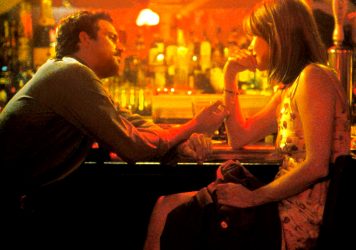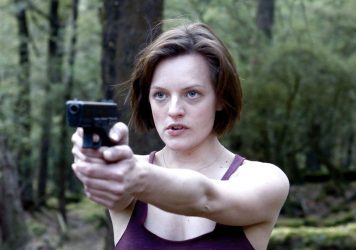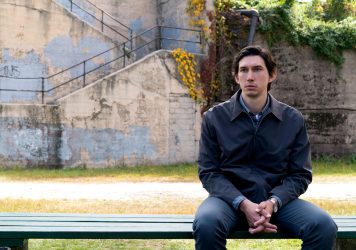Jane Campion’s achingly beautiful Palme d’Or-winning masterpiece receives a rerelease to celebrate its 25th anniversary.
There’s a special sort of thrill that comes from being able to pinpoint the moment at which you fall in love with a film, particularly one that’s entrenched in the Film Canon. On this first viewing of The Piano, the moment arrived as Harvey Keitel gently thumbed a hole in Holly Hunter’s tights. As Ada McGrath falls for George Baines, I fell for Campion’s melancholy period drama – not so much for the romance between these two misfits, but for the film’s exquisite examination of womanhood and agency. Some 25 years since its initial release, The Piano remains a remarkable and poignant meditation on female power disguised as a love story for the ages.
“Silence affects everyone in the end,” says Ada McGrath in the film’s opening monologue, reflecting on her upcoming marriage to Alisdair Stewart (Sam Neill) as she awaits his arrival. Her muteness is described as a “dark talent” by her father, but Ada sees herself differently. “I don’t think myself silent. That is because of my piano,” she explains with an affectionate lilt. Having being married off by her father to a man she’s never met, she’s sceptical of their impending union, but stripped of the ability to talk, her sole vocalisation comes in playing her beloved piano, or being spoken for by her precocious young daughter (Anna Paquin).
On arrival in New Zealand, Ada is denied her voice when Stewart refuses to move her piano into his home, instead leaving it on the beach nearby. In denying Ada’s only means of self-expression, Baines inadvertently sets in motion the development of a relationship between Ada and her husband’s employee, George Baines (Harvey Keitel), who buys her beloved piano, and barters with him for lessons from Ada.
At a surface level, The Piano plays out as a hushed period romance between Hunter and Keitel, who exchange meaningful glances and find stolen moments away from the prying eyes of Neill’s impotent interloper. What elevates the film to greatness is Campion’s acute understanding of female trouble, and how womanhood has always struggled under the patriarchy. Ada is bought and sold like livestock, a pretty thing to be traded for a piece of land.
Lacking dialogue, save from her opening and closing monologues, Hunter has to rely on expression through movement, and it’s easy to see why her performance netted her a Best Actress Oscar – she captures Ada’s vulnerability while avoiding mawkishness. It’s impossible to not be captivated by the climactic scene between her and Neill – Campion’s camera lingers and lingers on Hunter’s face to capture the pain and betrayal in her eyes, then follows way she stumbles from his grasp like a wounded deer.
Enduring, too, is Michael Nyman’s soaring score, featuring the iconic Piano theme ‘The Heart Asks Pleasure First’ (Ada’s impassioned solos all the more impressive for the fact Hunter learnt piano for the film so she could play them herself). Set against the wild landscape of New Zealand, Campion treats her homeland as a wilderness, framing Ada and Flora as small creatures against the bleak beach or lush jungle – an antipodean imagining of Wuthering Heights’ wily, windy moors. It’s a cliché to say it, but The Piano benefits from being viewed in the engulfing dark of a cinema screen, where one can be fully immersed in its rugged landscapes and surrounded by the melodic sound of Nyman’s strings and keys in conversation.
And yet The Piano, as beautiful as it may be, is desperately sad too – it’s this melancholia which haunts, as Ada’s happy ending feels somehow like a resignation. She whispers, as she imagines herself in a watery grave alongside her beloved piano, “It is a weird lullaby, and so it is mine. There is a silence where hath been no sound, there is a silence where no sound may be, in the cold grave, under the deep deep sea.” Is death the only true freedom in The Piano? Suggesting so feels awfully fatalistic, but it is this nagging question – along with the suggestion that Ada is a creature who does what she does only to survive – that makes Campion’s such a mysterious, unknowable, beautiful thing.
Published 15 Jun 2018
Somehow the only film by a female director to win the Palme d’Or – no pressure there then.
As tender, remarkable and sincere as drama comes.
Rightly lauded and celebrated, and well worthy of its current rerelease.

Jane Campion’s much maligned 2003 thriller offers a vital subversion of the male gaze.

By Lewis Gordon
The first season of Jane Campion’s crime drama offers a powerful critique of patriarchal values.

From The Colour of Pomegranates to A Quiet Passion, seek out these fascinating portraits of verse-makers.